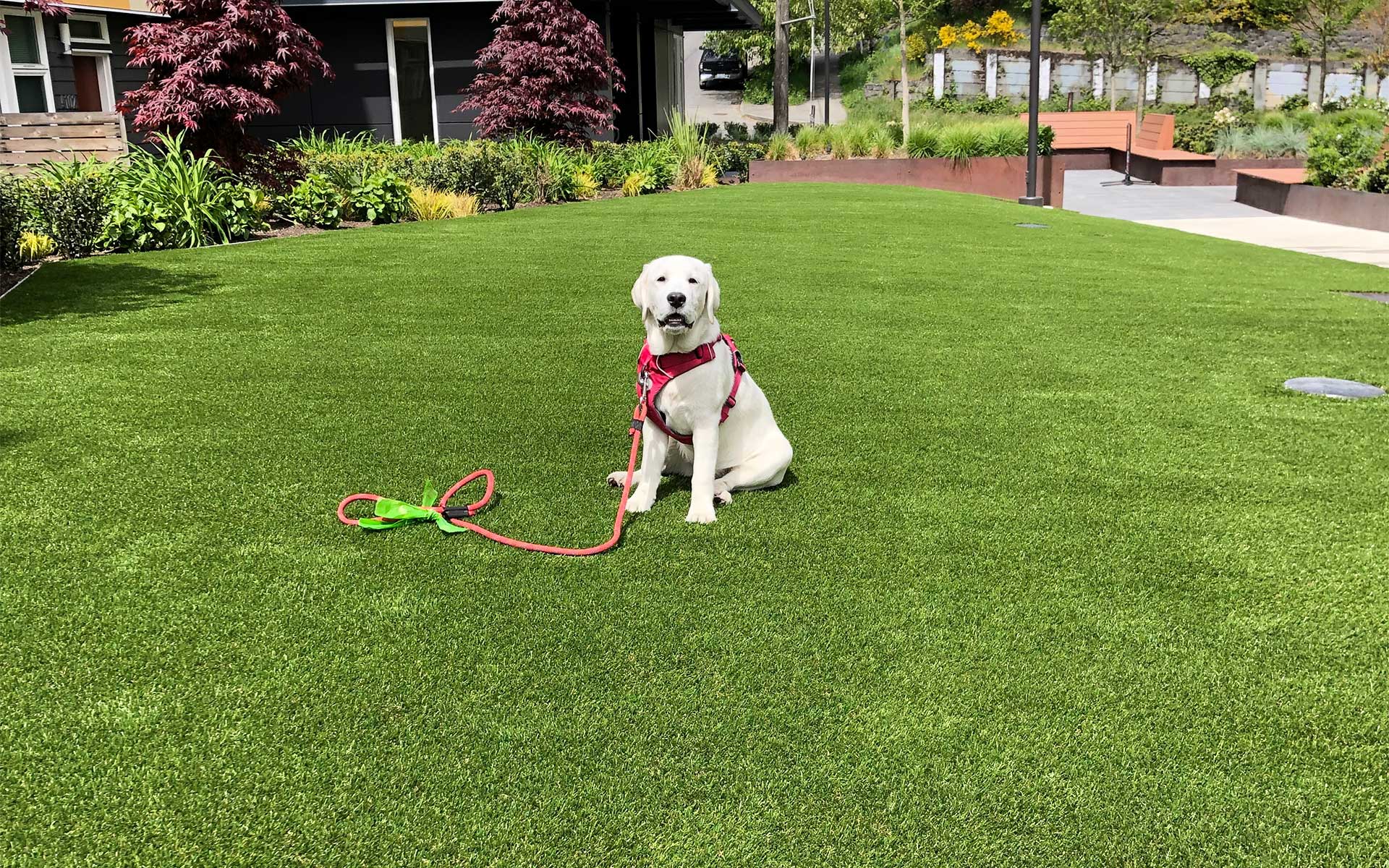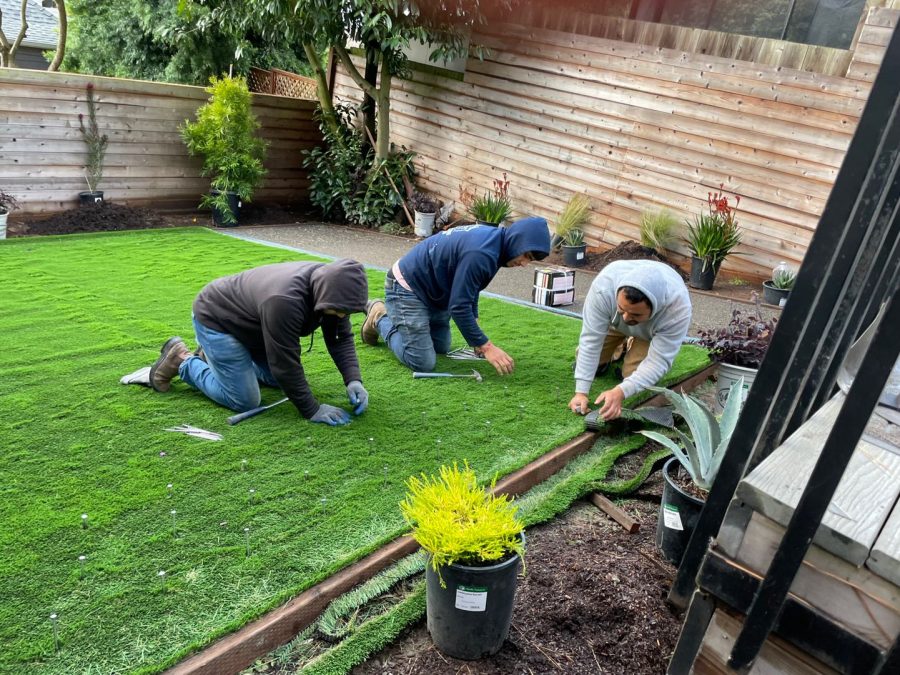Tailored Turf Installation Phoenix AZ for Residences, Businesses, and Play Areas
Tailored Turf Installation Phoenix AZ for Residences, Businesses, and Play Areas
Blog Article
Look Into the Environmental Benefits of Opting for Artificial Lawn Solutions
The adoption of artificial turf services provides a compelling possibility to resolve pressing environmental obstacles. By dramatically lowering water usage and reducing the application of unsafe chemicals, these choices not only promote lasting landscaping yet also safeguard regional ecosystems.
Water Preservation Conveniences
One of the most considerable advantages of man-made turf is its capability to conserve water. In contrast, man-made grass does not require watering, dramatically lowering the general demand for water sources.
By removing the demand for regular watering, synthetic grass adds to sustainable landscape methods and assists mitigate the ecological effect of extreme water usage. The preservation of water prolongs to the decrease of overflow, which can lead to soil disintegration and waterway pollution.
Furthermore, the setup of synthetic grass allows home owners and municipalities to designate water sources much more effectively, concentrating on vital usages such as alcohol consumption water and agriculture. The shift towards synthetic grass not just advertises liable water usage however likewise lines up with more comprehensive ecological goals intended at maintaining natural deposits.
As communities significantly focus on sustainability, the water preservation advantages of synthetic grass offer an engaging situation for its adoption in domestic and business landscape design tasks.
Lowered Chemical Use
The transition to synthetic grass considerably decreases the dependence on chemical treatments generally made use of in all-natural grass upkeep. Traditional turf management usually entails the application of herbicides, chemicals, and plant foods to advertise growth and control insects. These chemicals can posture threats to human health and wellness, regional wildlife, and the setting, adding to soil and water contamination.
In contrast, synthetic grass eliminates the need for these hazardous compounds. Once set up, it requires marginal upkeep, primarily including routine cleansing and infrequent infill replenishment. This decrease in chemical usage not just profits the instant atmosphere however additionally adds to wider ecological security. By lessening the release of artificial substances right into the ecological community, synthetic grass promotes healthier soil and water systems.
Additionally, the lack of chemical runoff related to artificial lawn setups assists secure regional waterways from pollution, supporting marine life and maintaining biodiversity. Phoenix turf companies. As areas increasingly focus on sustainable methods, choosing artificial lawn presents a feasible solution that aligns with environmental preservation objectives. With this change, homeowner can delight in rich eco-friendly rooms without compromising environmental wellness, leading the way for an extra lasting future
Lower Carbon Impact

Moreover, the installation of synthetic grass can lead to substantial water conservation. Natural yards require substantial quantities of water for irrigation, which not only contributes to the carbon impact connected with water removal and treatment however additionally strains neighborhood water sources. On the other hand, synthetic grass needs very little upkeep, calling for no watering, thereby significantly reducing water usage and its connected energy prices.
Additionally, the durability of synthetic grass adds to its decreased carbon impact. With a life-span of as much as 15 years or more, the need for constant substitutes is decreased, additional reading causing much less waste and reduced power usage in production and taking care of traditional yard alternatives. Overall, fabricated grass offers a sustainable alternative for eco conscious landscape design.
Environment Conservation
Environment conservation is an important consideration in the debate over landscaping choices, particularly when comparing synthetic grass to natural grass. All-natural yard yards frequently call for substantial maintenance, consisting of making use of chemicals, herbicides, and fertilizers, which can negatively impact regional ecosystems. These chemicals can leach into the dirt and waterways, damaging native vegetation and fauna and disrupting neighborhood environments.
In contrast, synthetic grass presents an opportunity to minimize the environmental impact of landscape design. By choosing artificial turf, house owners can lessen the interruption of all-natural habitats connected with conventional yard care techniques. Synthetic grass removes the requirement for hazardous chemicals, thus shielding neighboring wildlife and maintaining the stability of bordering ecosystems. Moreover, the installation of synthetic lawn can cause the conversion of former grass locations into more biodiverse landscapes, such as pollinator yards or indigenous plant locations, which can support regional wild animals.
Eventually, the change to artificial lawn not just saves water and lowers maintenance initiatives but likewise fosters a more unified relationship in between human activities and the native environment, advertising habitat preservation in the procedure.
Long-Term Sustainability
Lasting sustainability is a crucial consider assessing see this page the advantages of synthetic lawn over typical lawn yards. One of one of the most significant benefits of synthetic grass is its longevity; it can last up to 15-20 years with very little upkeep, whereas all-natural yard needs constant reseeding and replacement. This longevity decreases the requirement for consistent resources, such as water, fertilizers, and pesticides, which are important for preserving a healthy and balanced turf lawn.
In addition, man-made grass adds to a decrease in carbon exhausts connected with lawn care equipment. Standard grass often need gas-powered mowers, trimmers, and blowers, every one of which add to air contamination. Artificial turf companies phoenix. In comparison, synthetic grass eliminates the need for such devices, advertising a cleaner atmosphere
In addition, the production of synthetic grass progressively makes use of recycled materials, boosting its sustainability account. As manufacturers take on environmentally friendly practices, the ecological footprint of artificial turf remains to diminish.

Final Thought
The adoption of synthetic grass options offers considerable environmental advantages, including substantial water preservation, lowered reliance on dangerous chemicals, and a lower carbon footprint. Moreover, artificial turf aids in protecting natural environments by minimizing land disruption and advertising long-term sustainability through using long lasting materials. Collectively, these aspects highlight the capacity of artificial grass to add favorably to environmental health and wellness and provide a feasible option to typical landscaping practices in an increasingly resource-conscious globe.
In comparison, synthetic lawn does not require watering, considerably decreasing the total demand for water resources. By reducing the launch of synthetic compounds into the ecosystem, fabricated turf promotes much healthier soil and water systems.
Moreover, the setup of man-made turf can result in substantial water conservation. In comparison, man-made turf needs marginal upkeep, requiring no watering, therefore considerably lowering water use and its connected power costs.

Report this page